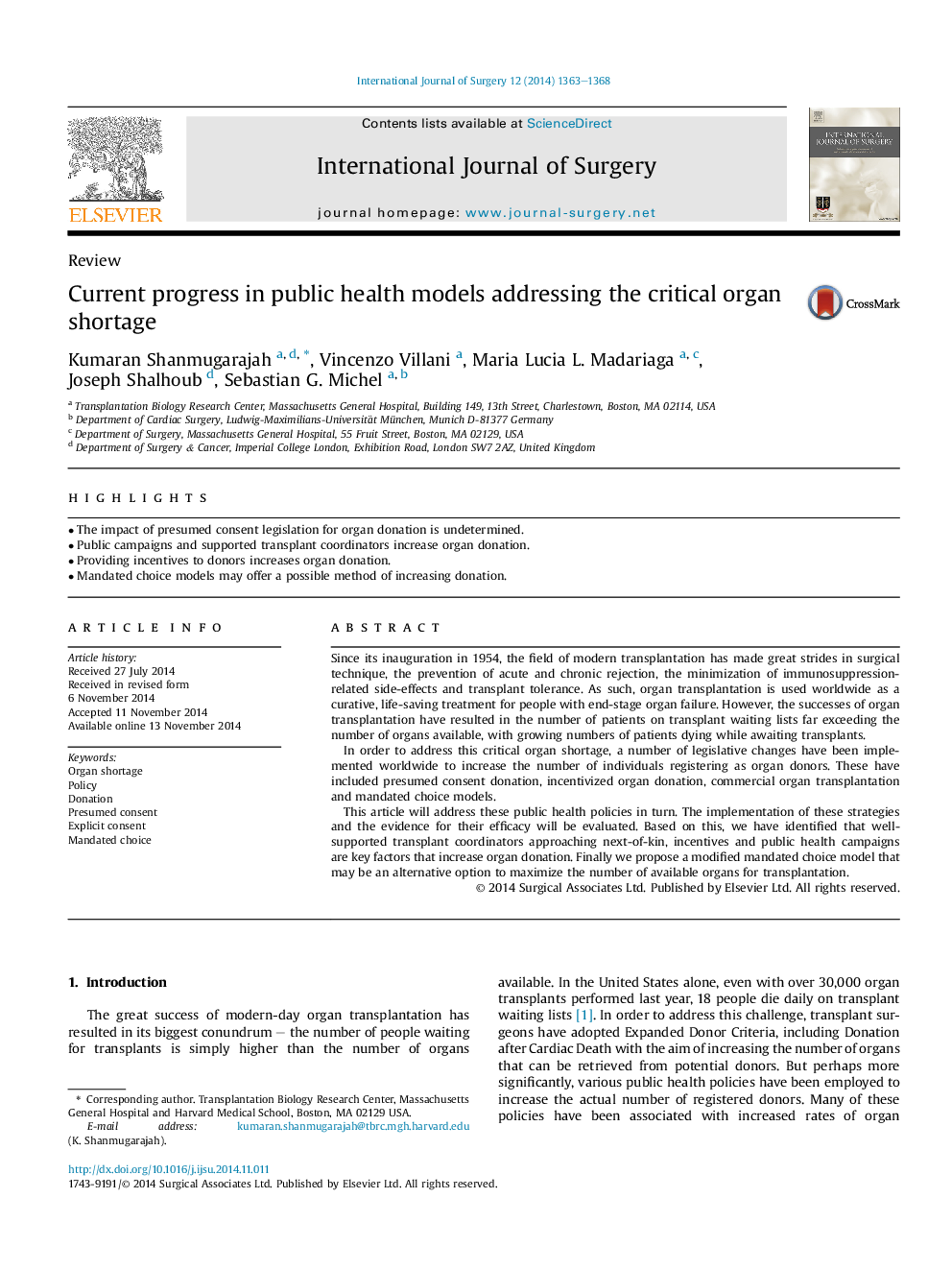| Article ID | Journal | Published Year | Pages | File Type |
|---|---|---|---|---|
| 6251765 | International Journal of Surgery | 2014 | 6 Pages |
â¢The impact of presumed consent legislation for organ donation is undetermined.â¢Public campaigns and supported transplant coordinators increase organ donation.â¢Providing incentives to donors increases organ donation.â¢Mandated choice models may offer a possible method of increasing donation.
Since its inauguration in 1954, the field of modern transplantation has made great strides in surgical technique, the prevention of acute and chronic rejection, the minimization of immunosuppression-related side-effects and transplant tolerance. As such, organ transplantation is used worldwide as a curative, life-saving treatment for people with end-stage organ failure. However, the successes of organ transplantation have resulted in the number of patients on transplant waiting lists far exceeding the number of organs available, with growing numbers of patients dying while awaiting transplants.In order to address this critical organ shortage, a number of legislative changes have been implemented worldwide to increase the number of individuals registering as organ donors. These have included presumed consent donation, incentivized organ donation, commercial organ transplantation and mandated choice models.This article will address these public health policies in turn. The implementation of these strategies and the evidence for their efficacy will be evaluated. Based on this, we have identified that well-supported transplant coordinators approaching next-of-kin, incentives and public health campaigns are key factors that increase organ donation. Finally we propose a modified mandated choice model that may be an alternative option to maximize the number of available organs for transplantation.
